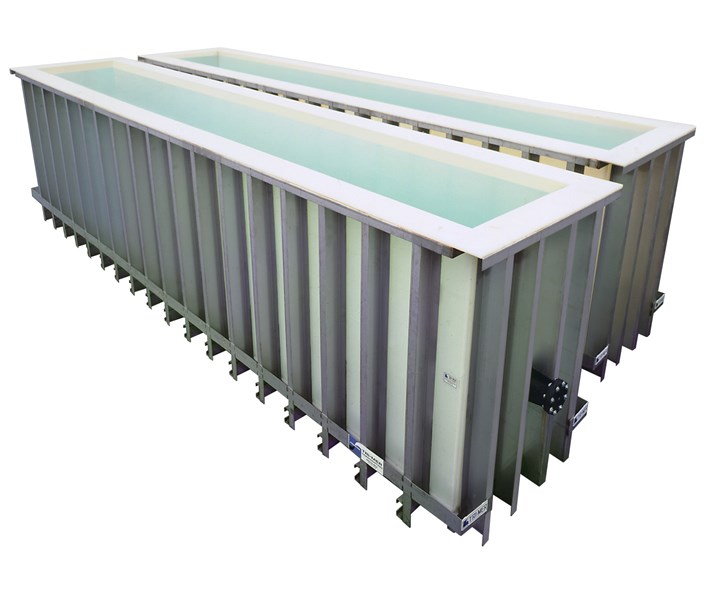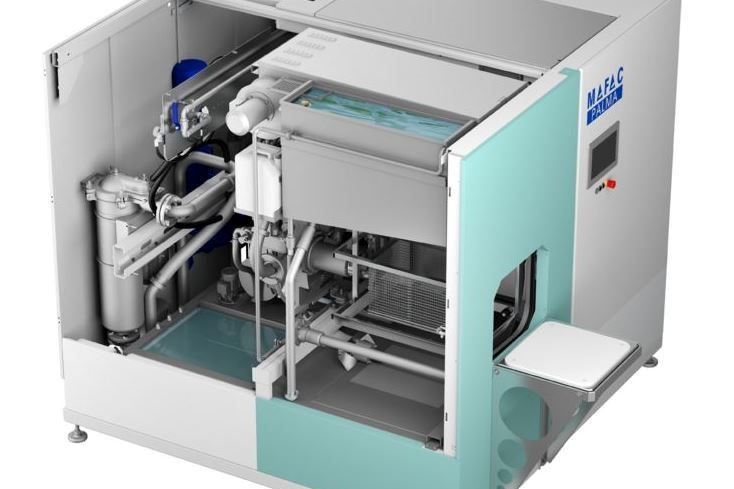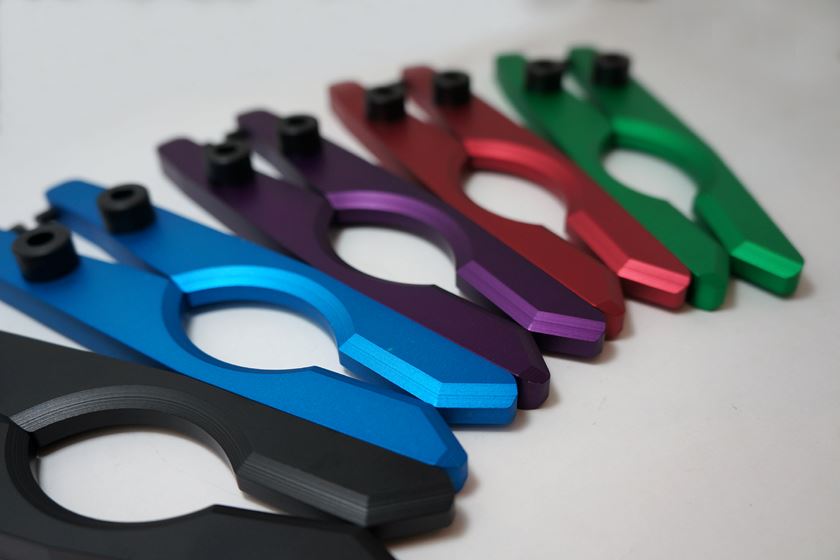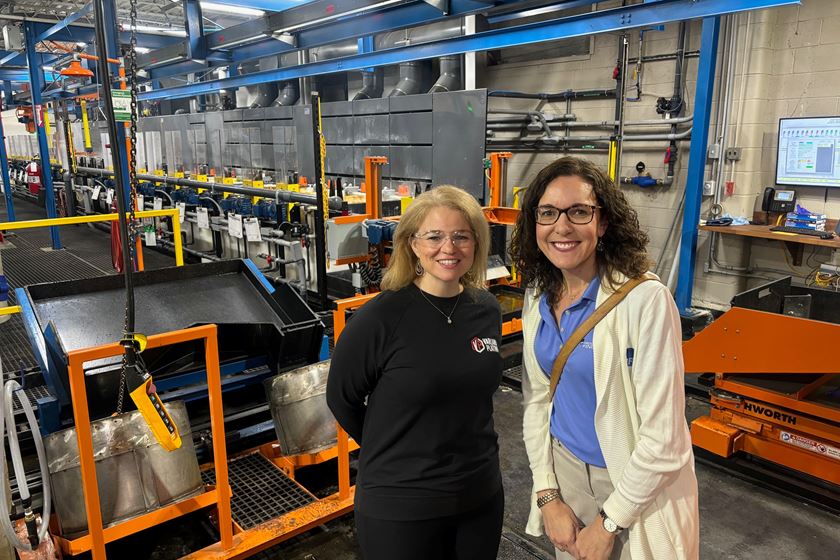Tri-Mer Tanks Resistant to Acids, Alkalis
Tri-Mer process tanks prevent delamination or embrittlement.
Tri-Mer Corp. fabricates process tanks of polypropylene, PE, PVC, CPVC, mild steel and stainless steel. It specializes in 100% co-polymer and homopolymer polypropylene, which they say are rugged, long-life materials that won't delaminate or embrittle, even with exposure to aggressive chemicals, over long periods of time. The company says the tanks provide exceptional resistance to strong acids and alkalis, even at higher temperatures.
The tanks are custom engineered in rectangular, circular and custom shapes, with fume hoods, cone bottoms, ducting, piping, pumps, agitation and material handling. According to the company, it specializes in tanks with requirements for special access, constraints on height or footprint, exceptional capacity (100 ft. or more) and tanks requiring robust structural support. Tri-Mer also offers a range of tank covers.

RELATED CONTENT
-
A Chromium Plating Overview
An overview of decorative and hard chromium electroplating processes.
-
Plating Q&A: Can you color stainless steel?
Our expert, Art Kushner, says yes, you can color stainless steel, but it is not a process that is typically performed in a plating shop. Read more about his answer.
-
Aluminum Anodizing
Types of anodizing, processes, equipment selection and tank construction.















